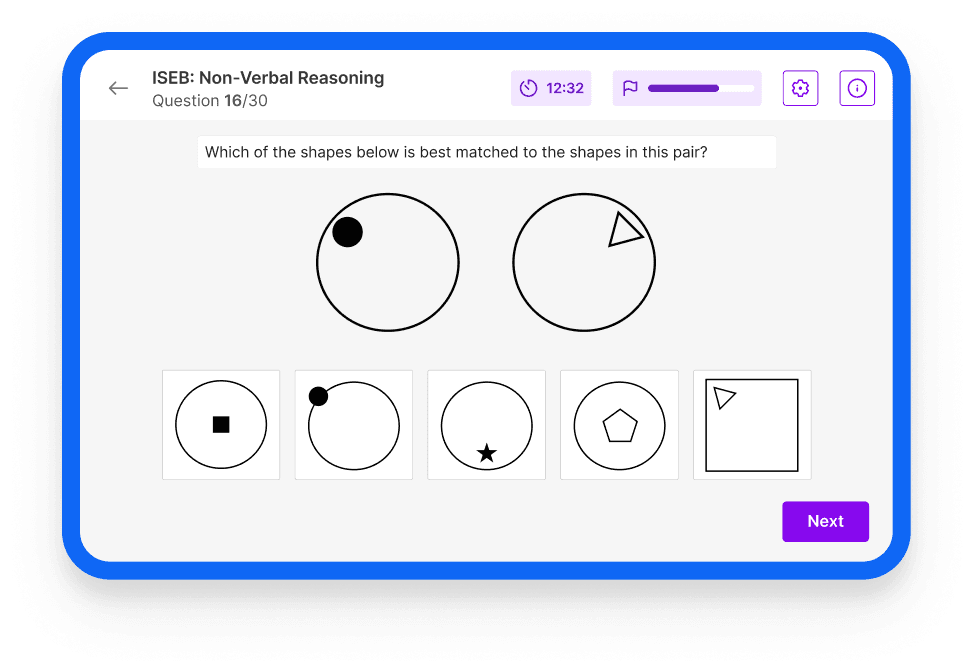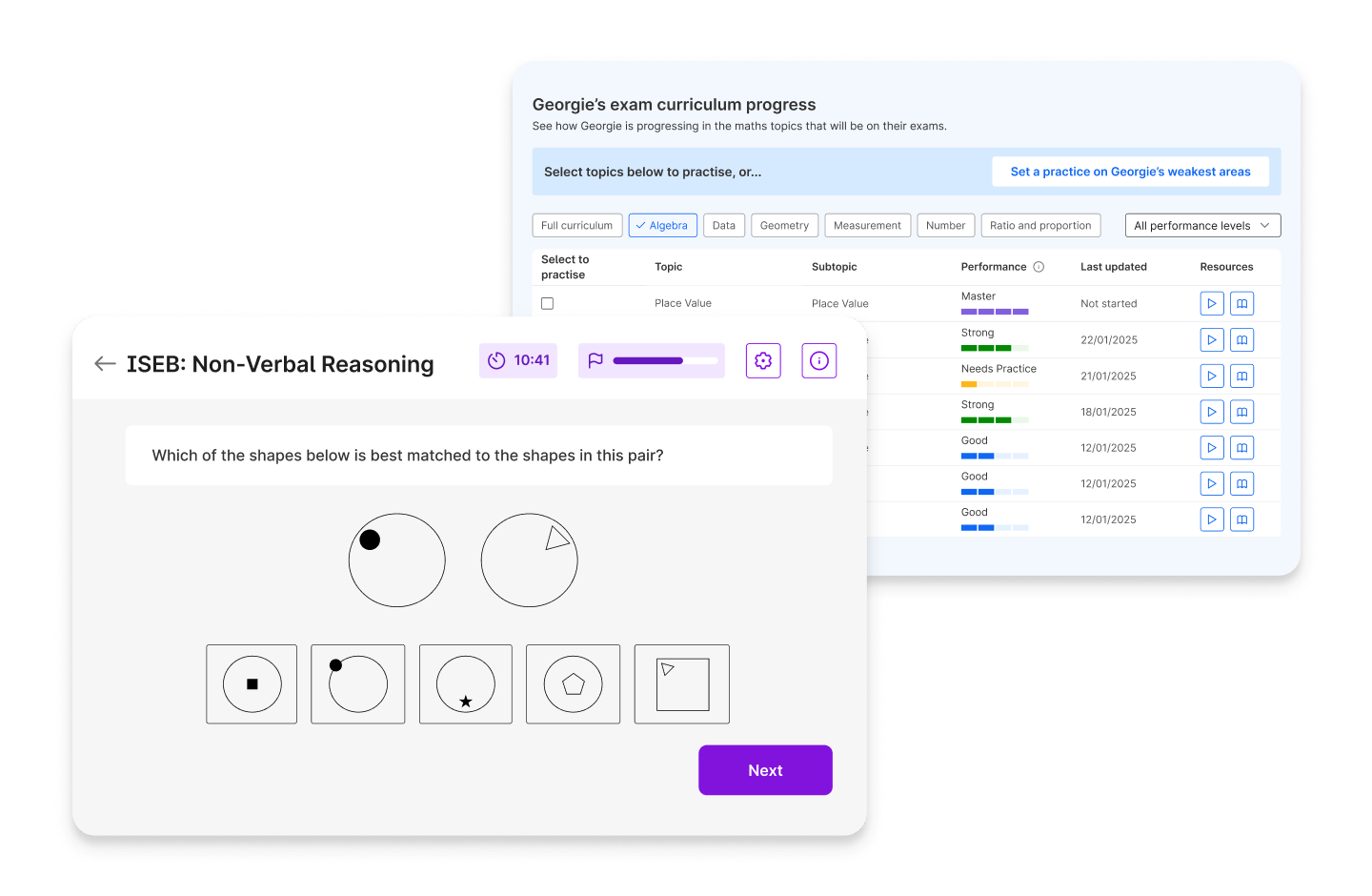Walthamstow Hall School 11+ guide

Considering Walthamstow Hall School for your child? We’ve collated everything you need to know about 11+ entry. Learn how to apply, what’s on the entrance exam, and how to help your child prepare for success.
Key information for Walthamstow Hall School
- Address: Walthamstow Hall Senior School, Holly Bush Lane, Sevenoaks, Kent, TN13 3UL
- Age range and gender: girls aged 2–18
- Type of school: independent day
- Number of students: 550+
- Admissions contact: [email protected]
- 11+ open days: September. Additional small group meetings with the headmistress in November and January
- 11+ selection criteria: ISEB Common Pre-Test, interview and report from current headteacher
- Financial assistance: means-tested bursaries
- 11+ scholarships: academic, sport, drama, art
About Walthamstow Hall School
Walthamstow Hall School is a small independent day school for girls aged 2–18 in Sevenoaks, Kent, founded in 1882. The school is a 10-minute walk from Sevenoaks train station, making it convenient for parents commuting to London.
The original Arts and Crafts–inspired main building is complemented by new facilities. These includes a new sports centre, a music block, an art room, a swimming pool and a sixth form centre.
The Muddy Stiletto 2023 review of the senior school says that Walthamstow Hall is ‘ideal for families… to take advantage of the fast commute into London or for those in the surrounding countryside. For many an all-girl environment offers liberation, the chance to be themselves and freedom from self-consciousness in their teen years.’
Walthamstow Hall School has also received favourable reviews from the Good Schools Guide. It says: ‘Wally girls are at ease in their own skin – swashbuckling on the stage, facing-off in lacrosse, or engineering racing cars’.
Dates for your diary
- Registration closes: October in Year 6
- ISEB Common Pre-Test: November in Year 6
- Interviews: September–November in Year 6
- Offers of places: by end of autumn term in Year 6
Walthamstow Hall School 11+ entrance exam
All children applying for 11+ entry to Walthamstow Hall School sit the ISEB Common Pre-Test. This is an exam created by the Independent Schools Examination Board which is usually taken in the autumn term of Year 6.
The ISEB Common Pre-Test is taken online and consists of multiple choice questions. It is entirely adaptive, which means the questions become more difficult depending on how your child is performing. The questions span four subjects:
- Maths: questions are based on the Year 5 national curriculum – although children in Year 6 may find this section challenging. The questions range from arithmetic to multi-step problem solving.
- English: questions are split into two sections: reading comprehension, and spelling, punctuation and grammar.
- Verbal reasoning: your child will be tested on their ability to reason and solve problems with written information, such as letters, words, symbols and numbers.
- Non-verbal reasoning: these questions assess your child’s logic, critical thinking and problem-solving skills using figures and diagrams. They will need to show that they can analyse and manipulate 2D and 3D figures.
The ISEB Common Pre-Test takes around 2 and a half hours to complete. Your child can sit the four subjects together or at separate times. If they are taking all four subjects on the same day, they will be allowed a short break between each section.
Girls applying to Walthamstow Hall School are also invited to an interview with a senior member of staff. The admissions team will also request a report from your child's current headteacher.
Is your child ready for the ISEB Pre-test?
See where they stand in minutes. Atom’s free ISEB baseline tests give you an instant breakdown of their strengths and gaps. Know exactly what to focus on next and start preparing with direction, not uncertainty.
.png)
Atom’s top tips for applying to Walthamstow Hall School
Walthamstow Hall School is a selective school, and competition for places can be high. Here are our top tips to help your child prepare for the selection process.
Bitesize learning
It’s important to build a good knowledge base before school entrance exams. Your child should have a good understanding of the content they’ve been taught at school before testing their knowledge with practice tests.
Using a ‘little and often’ approach when learning is key – our brains encode new information more effectively when dealing with smaller ‘chunks’ of information. For children aged 10–11, child psychologists recommend regular study sessions of 20–30 minutes.
With Atom Home, you don’t need to worry about creating a study schedule. When you enter your target schools, you’ll get a bespoke learning plan tailored to your schools’ entrance exams. Know exactly what your child needs to do each week to confidently pass.

Read widely
Entrance exams test children’s ability to analyse and interpret written information. Regular reading is a great way to help your child build these skills.
Encourage them to read books from different genres and by a diverse range of authors. Increasing the variety of your child’s reading will help them understand different styles, tones and purposes. Meanwhile, reading a little every day will help widen their vocabulary, sharpen their analytical thinking, and enhance their imagination.
Looking for reading inspiration? Check out our Key Stage 2 reading list.
Hone curiosity
Selective schools are often looking for children who are interested in learning. You can help by supporting your child’s broader learning, their intellectual curiosity, and their passion for developing an understanding of the world.
Talk to your child about the world we live in and inspire an interest in current affairs with age-appropriate journalism. It’s also a good idea to make sure they’re benefitting from a rich variety of experiences, such as visiting libraries, museums and galleries.
Refine exam technique
When your child feels confident with their knowledge of the exam topics, they’ll be ready to put their knowledge to the test.
Mock tests can help your child develop problem-solving skills and refine exam technique. They’re also a great way to consolidate learning, while highlighting any knowledge gaps they might want to tackle before exam day.
When you set Walthamstow Hall School as a target school on Atom Home, your child will get ISEB mock tests as part of their learning plan. Atom’s mock tests mirror the real ISEB – the curriculum, the timings, the controls and even the colours. Know what to expect on exam day.

Celebrate progress
Setting regular, achievable goals and celebrating your child’s progress – no matter how big or small – will help keep their motivation high.
Make sure to encourage a growth mindset. This means celebrating effort, as well as achievement! When your child makes mistakes or struggles to understand a particular topic, help them understand that they’ll improve through practice. Regular praise will help your child improve their resilience when tackling new and challenging topics.
Remove the guesswork from ISEB prep.

Worried about how your child will perform in the ISEB Common Pre-Test? The adaptive format can feel unpredictable, but their preparation doesn’t have to.
Atom adapts to your child’s level as they work. We show you exactly what they need to practise and how they’re progressing.
- Follow personalised weekly exam plans that adjust to your child’s performance and show them what to learn next.
- Practise with replica ISEB mock tests that generate new questions every time, so they build real exam skills.
- Track progress and see how they compare to others preparing for the ISEB Pre-Test.
Start your free trial and watch your child master every ISEB subject.
